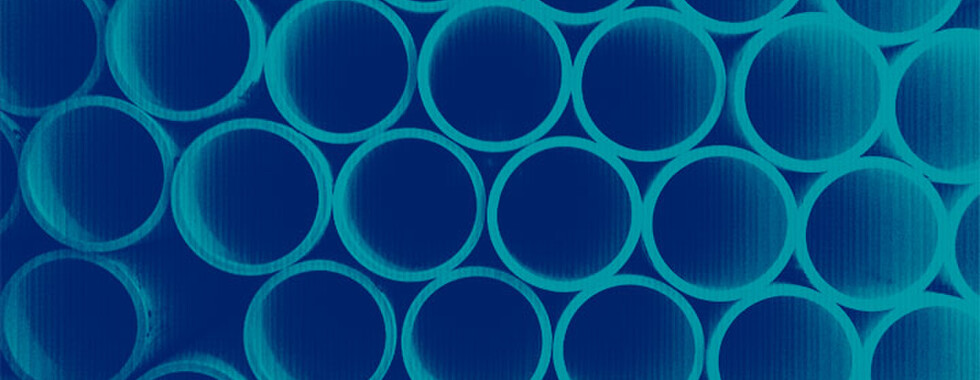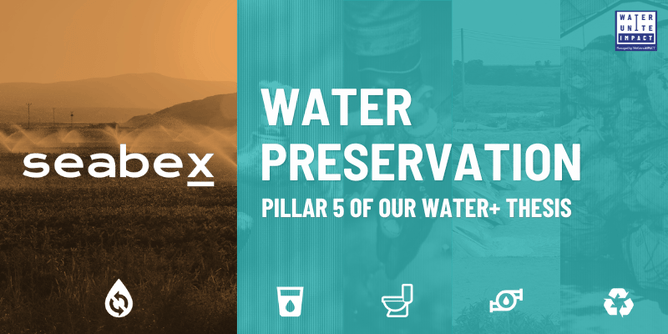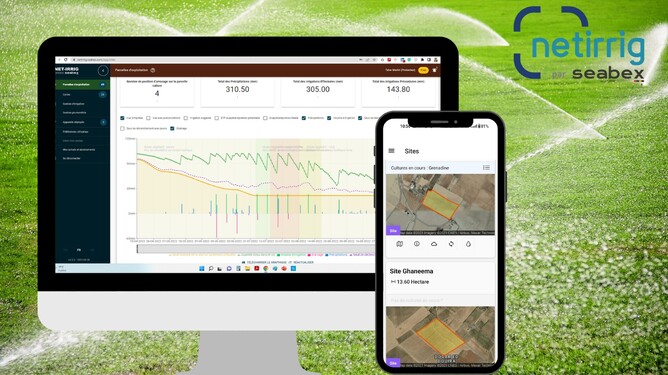Continuing our focus on Pillar 5 of our Water+ thesis and following our announcement last week that they are joining the Water Unite Impact portfolio, we now focus on Seabex.
Seabex, an agri-tech startup, is revolutionising farming with AI and sensorless technology.
Seabex exemplifies what can be accomplished with innovative water preservation technology. Last December, Chairman Taher Mestiri spoke at our COP28 event, explaining the organisation's motivation and what Seabex can achieve through forward-thinking agri-tech.
Mestiri was raised in Tunisia, where many people lack access to clean water. Despite this, a number of farmers in the region use far too much water for agriculture - a story repeated across the world. Mestiri told us, "Some farmers are irrigating more than they should, while others do not have enough water to irrigate, but in the end, they are all losing."
The agricultural sector is a major water consumer and poses a significant challenge to water conservation as it accounts for approximately 70% of natural water withdrawal. As the threat of climate change intensifies, Mestiri reminded us of the urgent need to "reinforce the capacity of farmers, as we will not be able to do it tomorrow because it will be too late. By 2040, there will not be enough water for everyone on Earth."
Seabex is able to stabilise the agrivalue chains in two ways. To begin, Seabex collects and organises data that enables people in the supply chain to make better decisions. Its AI-powered irrigation solution monitors water-soil content and offers insights to help prevent overwatering and waste. Seabex also contributes to the stability of the agricultural supply chain by improving farmers' skills, resources and support at scale, enabling them to produce better and more reliable crops.
By implementing agri-water strategies that focus on e-monitoring and automated solutions, Seabex’s water-smart solution can reduce farmers’ water consumption levels by an average of 30%. Striking the right water consumption balance leads to a better quality and quantity of production. This, in turn, can help farmers to increase their yields by an average of 20%.
Furthermore, Mestiri went on to emphasise that this is not just a farmer-specific issue, stating that "water and agriculture intersect multiple interests."
Water, a finite resource essential for all aspects of life, is increasingly threatened by extreme weather events, which make it more scarce, unpredictable, and polluted. According to the United Nations, over 40% of the world's population currently faces water scarcity, a figure expected to rise in the coming years due to climate change. These impacts on the water cycle jeopardise sustainable development, biodiversity, and people's access to water, sanitation, and economic security.
As our planet faces growing pressure from climate change and an increasing population, it is crucial to prioritise water preservation for a sustainable future. We are thrilled to welcome Seabex to our portfolio. By reducing water consumption in irrigation Seabex can not only better the lives of farmers, but make the world more sustainable and secure. Mestiri summed up his hopes for the future; "We said at Seabex we need to build a solution that is highly scalable to be able to help all farmers globally.”


